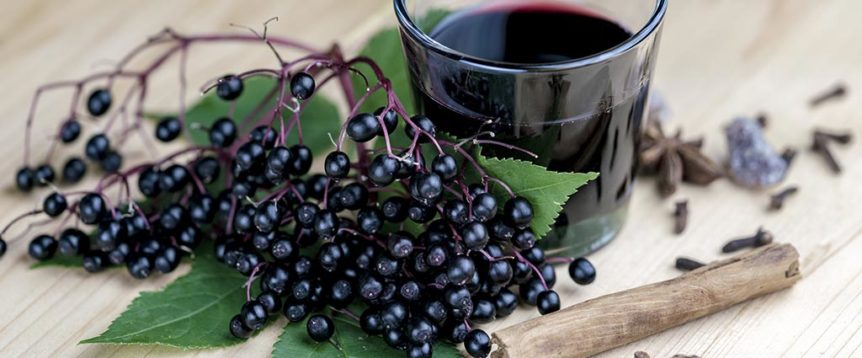WHAT IS IT? Black elderberries grow on elder trees and shrubs (Sambucus nigra) indigenous to Europe, Africa and Asia, and now common in North America, too. The raw berries are toxic, but when cooked they are a good source of antioxidants and fiber.
USE IT FOR: Shortening the duration of colds and flu; may also boost the immune system and fight inflammation.
THE SCIENCE: Anecdotal evidence abounds: As early as 400 B.C., Hippocrates called the elder tree his “medicine chest,” and its popularity as an upper-respiratory remedy has continued through the centuries. A few small modern-science studies vouch for its benefits. For example, a 60-participant study published in the Journal of International Medical Research showed that an elderberry extract compound (Sambucol) shortened flu symptoms by up to four days (note: Sambucol also contains other herbs and vitamin C). In an Australian study with 312 participants, elderberry capsules reduced the length of colds for international travelers. German researchers also found that liquid elderberry extract inhibited the flu virus and human pathogenic bacteria in a lab setting. Most researchers agree, however, that more studies are needed to confirm elderberry’s efficacy.
HOW TO TAKE IT: Supplements usually deliver the berries as a liquid syrup or extract, but capsules are also available. As a syrup or extract, sweet-tart elderberry can be taken alone or added to herbal teas, lemonade or sparkling water. Start taking it at the first sign of illness; an average dose is 1 teaspoon, four times a day for up to five days.
Read more about natural supplements that help with immunity.

